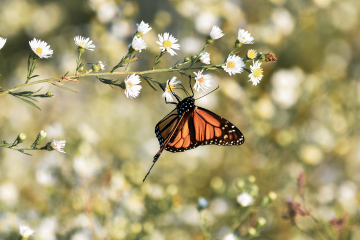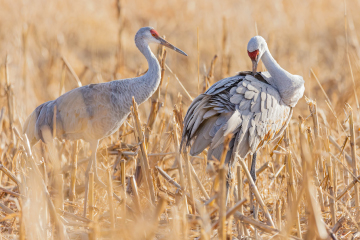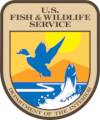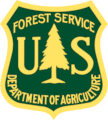Significant Importance of Supplemental Water for Habitat in a Drought
Playa wetlands in the Rainwater Basin are dependent on runoff from precipitation and snowmelt to provide habitat during spring migration. This landscape has been highly altered to maximize production of row-crops. Modifications have included land leveling and development of an extensive road network. These features divert natural runoff from the watersheds that fill the wetlands. Irrigation re-use pits were also excavated across the landscape to improve gravity irrigation efficiency. With the advent of pivot irrigation many of these features are no longer used but still fill with runoff that would otherwise flood wetlands. Drought conditions exacerbate these alterations and as result significantly limit the amount of available habitat for waterfowl and other wetland dependent species during spring migration.
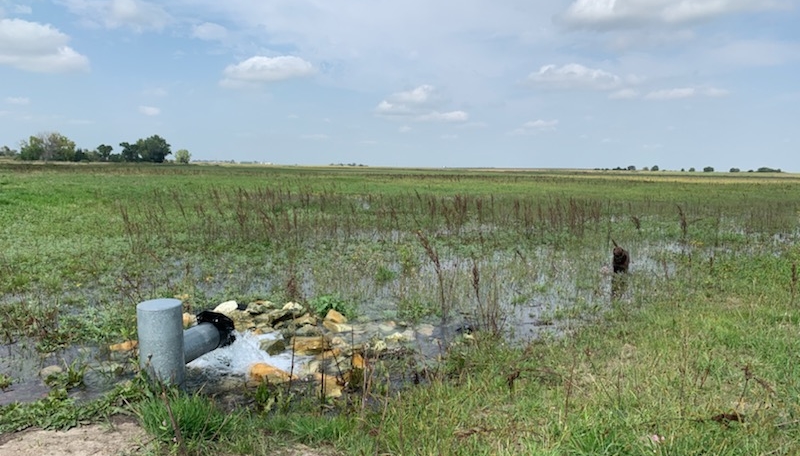
Since 1992, the Rainwater Basin Joint Venture (RWBJV) Partnership has actively worked to restore hydrology within the wetlands and the associated watersheds. For example, over 250 irrigation reuse pits have been filled in the watersheds of public wetlands managed by Nebraska Game and Parks Commission or U.S. Fish and Wildlife Service and private wetlands enrolled in wetland conservation programs. Based on hydrologic modeling these actions would provide an additional 1,250-acre feet of water or 2,500 acres of flooded habitat under average climatic conditions.
Despite these restoration efforts supplemental water deliveries are necessary to augment natural runoff to ensure adequate habitat during migration. Supplemental water deliveries can be delivered through high-capacity groundwater wells or from irrigation canals. Annually the Nebraska Game and Parks Commission and U.S. Fish and Wildlife Service budget $105,000 for supplemental water. At target levels supplemental water will provide 3,840 acres of habitat. Based on 2017 costs this will be estimated to cost $276,050 above agency funding to operate necessary infrastructure. In 2015, the RWBJV partners evaluated agency budgets and recognized that an endowment would be needed to ensure the infrastructure could be annually operated in the future. The RWBJV partners worked with Ducks Unlimited to establish an interest-bearing account. The goal is to secure $7.1 million of principle to provide the desired annual dividend. Ducks Unlimited fundraising staff have worked individual donors, corporations, and foundations to leverage over $800,000 in commitments in the last three years.
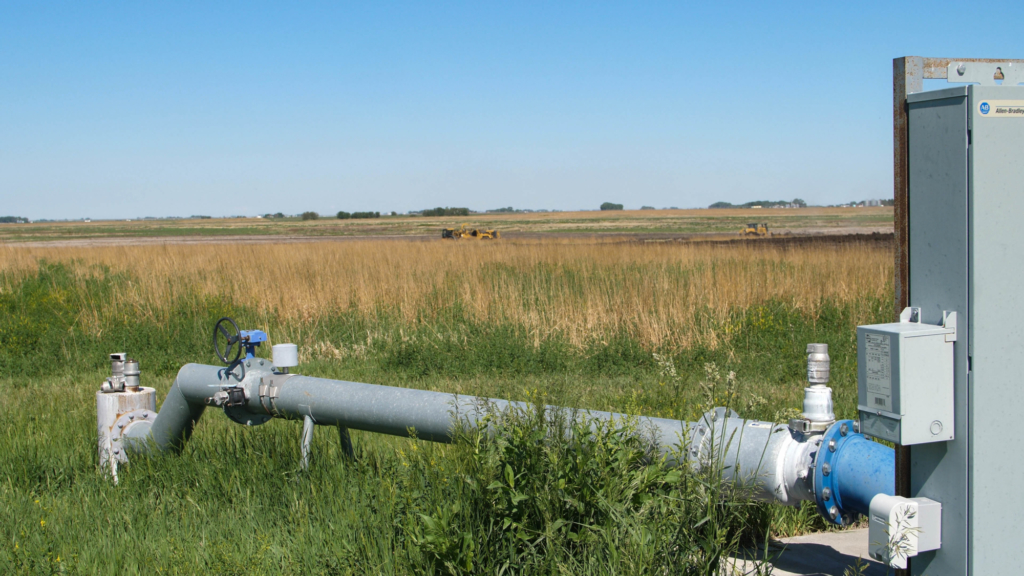
The interest from this initial investment is already being leverage with agency funds to put more water on the landscape. In 2021, $25,000 was leveraged with agency funding to pump in the fall and during the 2022 spring migration. A total of 25 Wildlife Management Areas (Nebraska Game and Parks Commission) and 15 Waterfowl Production Areas (U.S. Fish and Wildlife Service) received supplemental water deliveries. As a result of the extreme drought conditions these properties provided over 66% of the available habitat during the 2022 Spring Migration. This is significant since only 78 wetlands ponded water in 2022 providing 1,090 acres of flooded habitat. This number is well below the average ponding of 6,800 acres that has been document through annual habitat surveys that have been collected since 2004.
